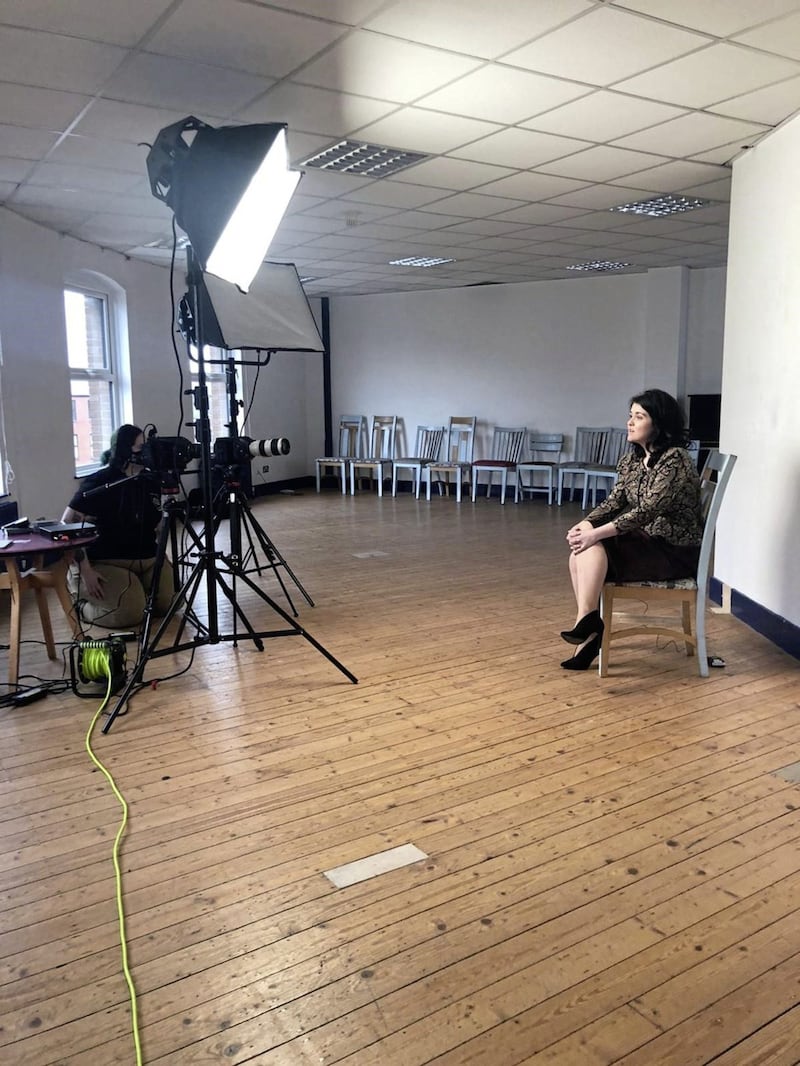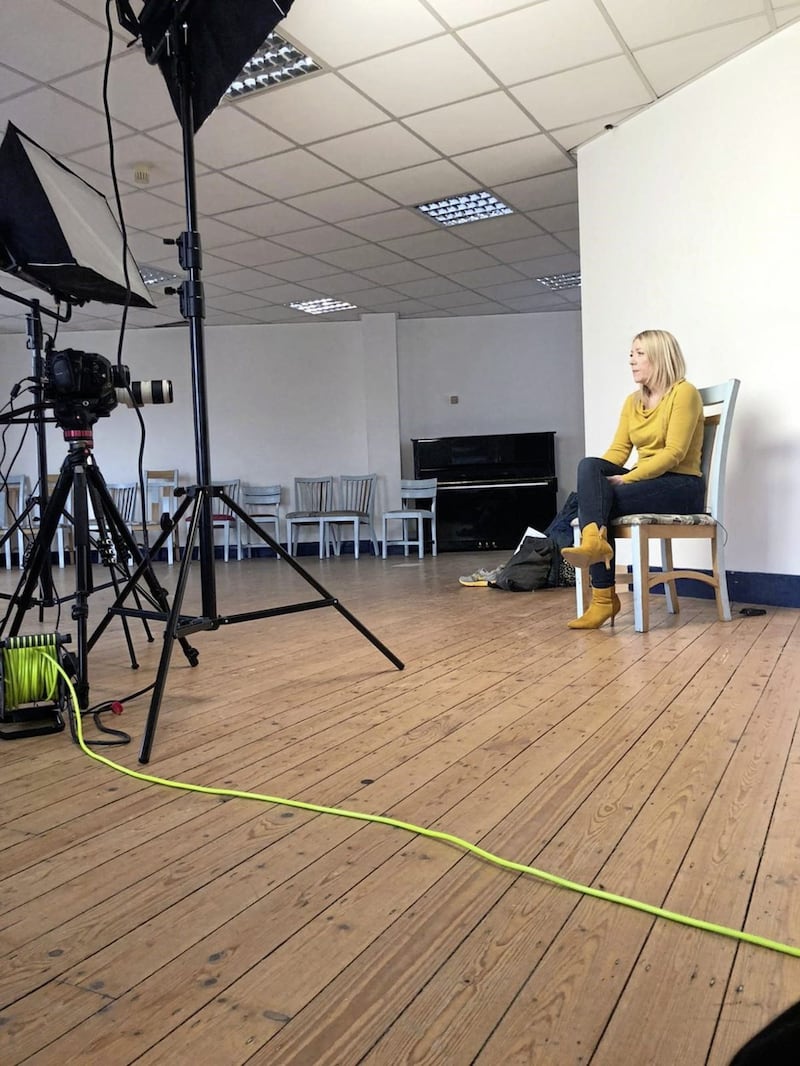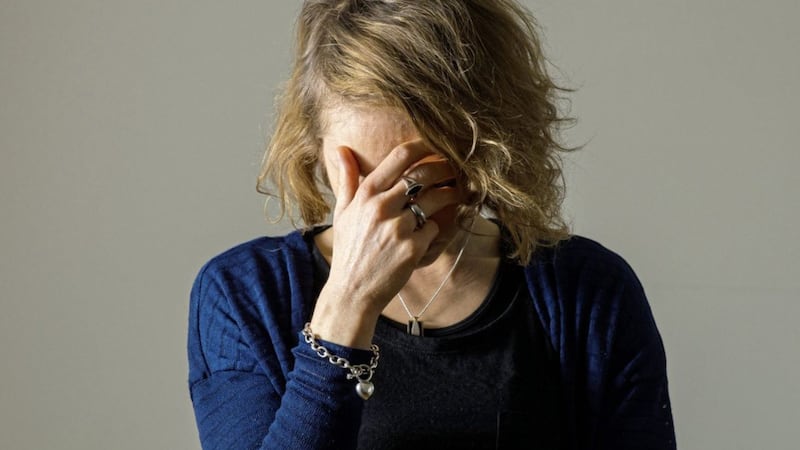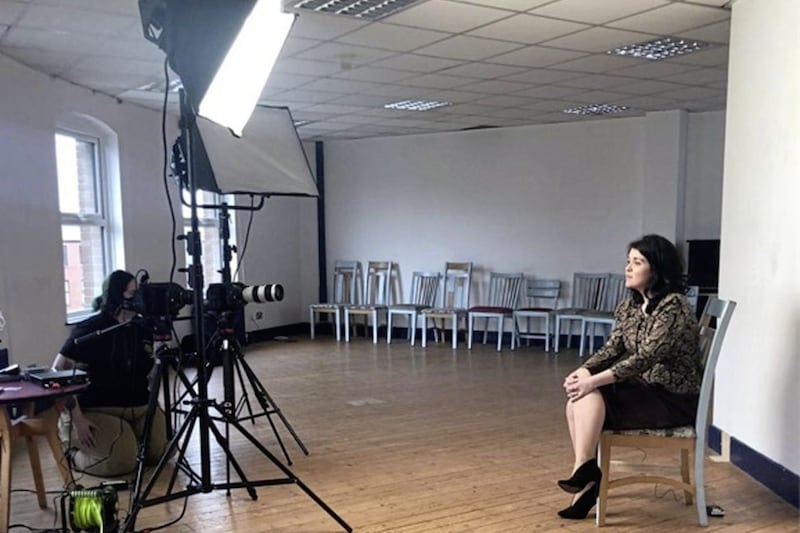“Quite often people who experience sexual harassment or sexual violence think it was their fault - they shouldn’t have been there, they shouldn’t have said this, they shouldn’t have let that happen. But it’s never your fault.”
Helen Crickard helped set up Belfast-based campaign group Raise Your Voice two years ago. Disturbed by ongoing misogyny and outdated ideas about sexual harassment and consent, she wanted to change public attitudes to the treatment of women.
Now her group, along with Three’s Theatre Company, have given a voice to the stories of six women who have experienced abuse or harassment.
The company produced six powerful videos in which the women’s words are spoken by actresses.
The stories include a woman who saw her mother suffer repeated domestic abuse and another who was harassed in the street aged 17.
Ms Crickard said many women felt they had to downplay their experiences of harassment.
“There is an awful lot of sexual harassment that happens to women,” she said.
“People can say things to you and you just try and shrug it off and move on."
She said the videos included stories from women across different age groups.
“We felt that the videos bring these stories to life," she said.
“The actors really immersed themselves in these stories. Theatre and art are very important for getting your message across.
“We have to use every medium and reach as many people as we can."
Women submitted their stories anonymously through the Raise Your Voice website.
“Often they would say this is the first time they’ve told anybody this,” Ms Crickard said.
“It’s a terrible weight to carry around with you.”
“What we wanted to do was focus on the impact (on women). If you got chased one night, even if no one laid a finger on you, the impact of that is that women don’t feel safe walking the streets alone.
“All of those things have been normalised. We need to take power back, focus on the perpetrators and the root causes (of harassment).”

The group has hosted online and in-person workshops on sexual harassment and consent to more than 1,000 people.
“Where do ideas of consent come from?” Ms Crickard said.
“When you look at the Bond movies, when you look at some really popular songs, consent isn’t really considered.”
The most recent statistics from the PSNI show that between July 1 2020 and June 30 this year domestic abuse crimes rose to 19,612, an increase of four per cent, on the previous 12 months.
The number of crimes reported were the highest since since 2004/05.
Ms Crickard said the statistics and the murders of women including Ms Everard and Ms Nessa show more work needs to be done to change attitudes and behaviour.
Wayne Couzens (48), who was a serving police officer at the time of Ms Everard’s killing, was given a whole-life term for the kidnap, rape and murder of the 33-year-old.
On the same day Couzens was sentenced last week, a 36-year-old man appeared in court charged with the “predatory” murder of Ms Nessa, a 28-year-old primary school teacher.
“It’s unfortunate that it’s only when a woman is murdered that it captures the attention of the press,” Ms Crickard said.
She said although the public has greater awareness of abuse and sexual harassment, more change is needed.
“We are seeing changes happen. Obviously we need to see greater change,” she said.
“Change needs to come from within communities.”

The group does not offer counselling but its website has a range of videos which aim to educate people about harassment and consent.
Ms Crickard said over the past decade women have experienced greater harassment through social media.
She said that anecdotally this harassment has increased during the pandemic.
“During lockdown (harassment) increased a lot more for women online,” she said.
“As one woman said, her blocked Twitter accounts are much higher than her male colleague’s blocked accounts.”
She said outdated notions of how men and women should behave are deeply unhelpful.
“It’s how women are expected to be in life - the wee pink, fluffy, caring, nuturing, quiet, submissive little girl,” she said.
“It starts from day dot. Boys can be boisterous.
“It’s also a negative thing for men because there is the pressure to be the income generator, the protector, the adventurer - it doesn’t work for anybody.”
Anna Leckey, the artistic director of Three’s Theatre Company, said it had taken great care to make the women’s stories the most important element of the videos.
“The vast array of stories, the ones which are very explicit and ones which show an undercurrent of fear - they are stories that we’ve heard before, that we know happen,” she said.
All the stories were recorded on one day. The actresses are shown speaking in front of a plain background to give greater emphasis to the words.
“It was a lot to take in but it was important that we did it,” Ms Leckey said.
“It’s heartbreaking how widespread the stories are - from someone who’s 17 to someone in their later forties all experiencing a similar thing.”
Ms Leckey said she hoped the videos would spark wider discussions about sexual harassment.

“These conversations are uncomfortable but so necessary, and only by speaking up and raising our voices will we get closer to women feeling safe,” she said.
“I’d encourage everyone to watch the videos and use them as a conversation starter.
“Have the difficult conversations, we can all do better.”
To watch the videos visit www.raiseyourvoice.community





